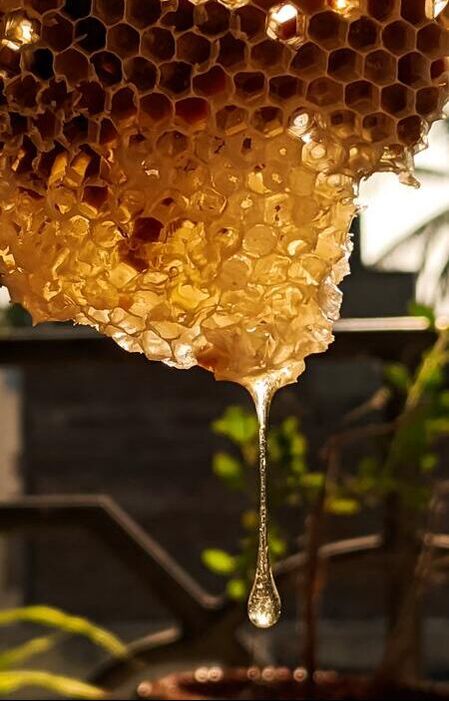Kawaiwete - the Amazonian honey hunters
The Kawaiwete live in the Xingu Indigenous Park in the Southern Amazon and are one of the many indigenous groups of Amazonia that engage in honey hunting. The Kawaiwete know 37 species of stingless bees that have their own Masters or Spirits. These spirits take care of the bees and regulate both their reproduction and the production of honey. Those who do not show respect to the bees, for example, by talking when collecting honey, can be punished by the spirits. Different bees have different spirits looking after them: the native bees are looked after by Tajuipa, while the Africanized honey bee, which was introduced to Brazil in the last century, is looked after by Maruari.
The Kawaiwete live in the Xingu Indigenous Park in the Southern Amazon and are one of the many indigenous groups of Amazonia that engage in honey hunting. The Kawaiwete know 37 species of stingless bees that have their own Masters or Spirits. These spirits take care of the bees and regulate both their reproduction and the production of honey. Those who do not show respect to the bees, for example, by talking when collecting honey, can be punished by the spirits. Different bees have different spirits looking after them: the native bees are looked after by Tajuipa, while the Africanized honey bee, which was introduced to Brazil in the last century, is looked after by Maruari.
|
Honey hunting and beekeeping
The Kawaiwete also believe that all natural resources have spirits. The spirit of the honey is called eirup, meaning “father of the honey” (eit = honey, tup = father). Only shamans have the power to communicate with the spirits and can cure the illnesses they give to humans. Honey gathering is mainly practiced by men. They either cut down the trees where the bees build their nests to collect the honey, pollen, and bee larvae or use ladders to access the bees’ nests. The collected products are used for food, such as honey juice (Eiry). Honey juice is a mixture of honey, pollen, brood combs, and water. However, the honey of some stingless bees is not consumed because of its taste, toxins or religious taboos. Wax is also used, for example, as glue to seal bags or is burned to keep mosquitos away. Honey is often used for medicinal purposes, such as to cure stomach aches or diarrhoea. In case of fever, honeycombs are rubbed on the skin to lower the temperature. They are also rubbed on the heads of children to scare away evil spirits and increase their ability to find honey in the forest. Today, the Kawaiwete and other indigenous groups in the Xingu Park also practice beekeeping. Their honey was trademarked as “Mel dos Índios do Xingu” (Xingu Indigenous Honey) in 2001. It was the first indigenous product to be labelled as organic in Brazil. Today, honey is the most important market activity in the Xingu Park, with around 900kg of indigenous honey sold per year. This economic initiative is part of the continuous struggle of different indigenous groups to protect the Xingu Park from continuous deforestation. |

